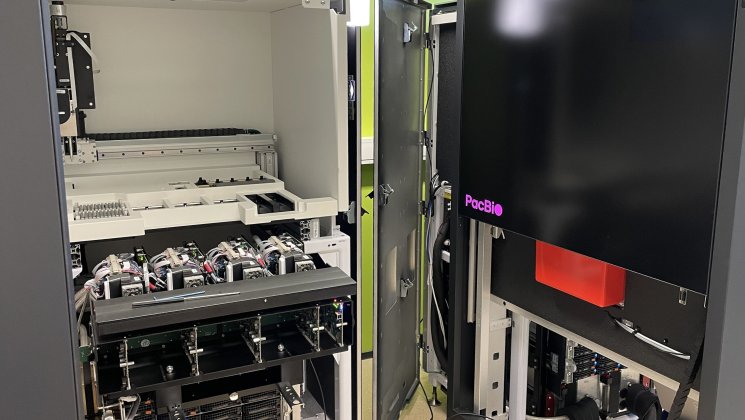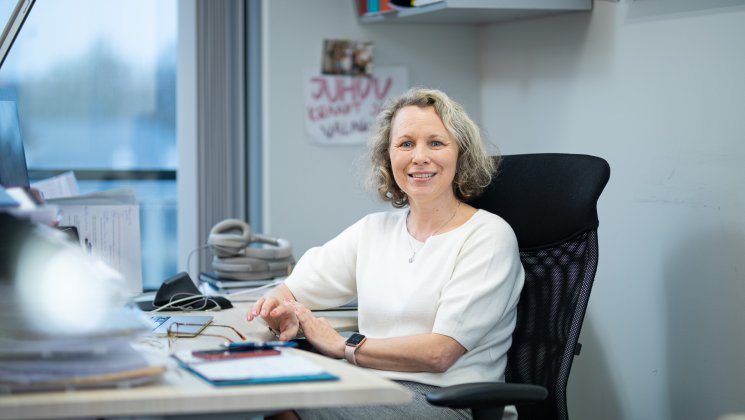Estonian Biocentre
The main research focus in Estonian Biocentre is on the studies of human genetic diversity and the evolutionary factors and events that have had a major impact on this. The biological profile of our species and the story of our past has evolved through several hundred millennia. In addition to the changes caused by the environment, human genetic history has been affected by the splitting and admixture of human groups at different times and places together with cultural and social factors. To learn the impact of evolutionary events on our species we study the genomes carrying all the hereditary information of the organism. In addition to analyzing modern human populations, our researchers study ancient DNA (aDNA) in the field of archaeogenomics. For a detailed reconstruction of past events, researchers are comparing the genomes of modern humans from all over the world to the ancient DNA which has been extracted from the archaeological biomaterial of our ancestors.
With recent advances in DNA technologies, we can also analyze microorganisms from archaeological biomaterials that provide information about diseases and epidemics, as well as lifestyles and diets. In addition, to investigate sex-specific aspects of human demographic history, our researchers study uniparentally inherited parts of the human genomes, the mitochondrial DNA and Y chromosome.
Furthermore, the research group of cellular stress studies how human and mouse cells and tissues react to various unfavorable conditions, for example, to diseases.
Our researchers are contributing to shed more light on the history written in human genes and to the understanding of the biological impact of recent and long-term events.
Research topics
The topics of the modern population genetics work group are broad and range from the analysis of the genomes of the Estonian population to the study of the population history of East Africa, South Asia, Siberia and Papua New Guinea. We aim to disentangle and characterise distinct ancestry components in extant human populations both on population and individual levels.
This enables us to shed light on the demographic past of our species. Our questions range from people of the continents to more recent migrations and mixtures of populations. The different selection pressures, incl. paths of pathogen coevolution in varied environments, lead to biomedically relevant differences in traits. Revealing the demographic history is, thus, important for understanding the variance of genetic risks for diseases across populations.
The research group of modern population genetics is led by Visiting Professor Luca Pagani, luca.pagani@ut.ee and Professor Mait Metspalu, mait.metspalu@ut.ee.
The Ancient DNA research group at the Institute of Genomics is an international set of researchers, post-docs and PhD students with a dedicated state-of-the-art cleanroom facility for high output of ancient DNA NGS data as well as the use of IT infrastructure for large-scale bioinformatic analyses.
The research purview of the group is human and pathogen evolution with projects spanning all seven continents and from the Palaeolithic period to the present.
The laboratory has the capacity to generate aDNA from human, animal, plant and sediment sources for research questions pertaining to a number of topics including the impact of diet, disease, demography and environment on humans, pathogen and animal evolution.
The lab provides low-coverage aDNA screening as a service and is open to visiting researchers. For enquiries, please email adna.estonia@gmail.com.
The research group of ancient DNA is led by Professor Kristiina Tambets, kristiina.tambets@ut.ee.
Uniparentally inherited parts of the human genomes, the mitochondrial DNA and Y chromosome, allow to study of sex-specific aspects of human demographic history. We use a large number of high-coverage sequences to investigate the dynamics of maternal and paternal effective population sizes, aiming to reconstruct the demographic history of north and eastern Eurasians and beyond. Currently, we combine contemporary and aDNA studies, looking into several standing “archaeogenetics puzzles” of the demographic history of Finnic-speaking peoples, people from the Caucasus region and several smaller local ethnic groups from across the World.
The research group of mitochondrial DNA and Y chromosome is led by Professor Richard Villems, richard.villems@ut.ee and by Associate Professor Siiri Rootsi, siiri.rootsi@ut.ee.
The research group of cellular stress studies how human and mouse cells and tissues react to various unfavourable conditions, for example, to the deficiency of nutrients (glucose or essential amino acids) or which kinds of protective mechanisms they use to reduce the deleterious effects of reactive oxygen species. These types of stressful conditions occur for example in life-threatening diseases, such as stroke, heart attack and tumours. How the cell functions in these situations thus determine not only the fate of the cell itself but potentially also the fate of the whole organism. We have been especially interested in the protein TRIB3, which we have found to serve a crucial role in the control of cellular stress responses. In our recent papers, we report that TRIB3 acts as a negative feedback regulator that is important for protecting cells against oxidative stress and for the adaptation of metabolism to nutrient deficiency.
The research group of cellular stress is led by Associate Professor Tõnis Örd, tonis.ord@ut.ee.
Cooperation
Interdisciplinary cooperation, including with the humanities and medical sciences, is key in the research of human biological history. Researchers of the Estonian Biocentre participate in the research of The Collegium for Transdisciplinary Studies in Archaeology, Genetics and Linguistics, University of Tartu.




